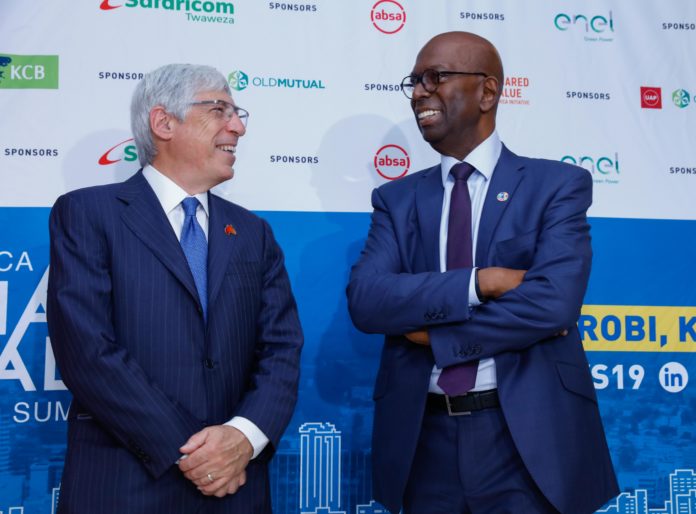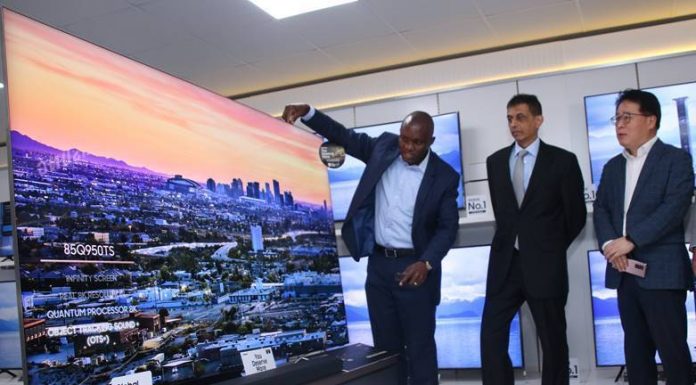Telco says businesses cannot thrive in deteriorating societies
Safaricom (NSE: SCOM) has made a resounding pitch to businesses to do more in fighting social inequalities which degrade the quality of life and the communities from which they derive profits.
Businesses can do this by addressing corruption within their ranks, paying taxes responsibly and transparently, tackling inequalities in the workplace and adopting inclusive business approaches, said Bob Collymore, CEO, Safaricom.
“Now more than ever there is a clear call to action to business that the business of business can no longer be just business. The Global Goals, the call for more private sector innovation and the call for businesses to develop products and services that address societal needs has been a constant topic in business leadership discussions,” said Collymore.
He was addressing delegates at the opening of the Africa Shared Value Summit at the Radisson Blu Hotel in Nairobi where a galaxy of business leaders are gathered for a two-day conference to advocate for the implementation of the Shared Value business model on the African continent.
Shared Value is a management strategy in which companies find business opportunities in social problems through products addressing unserved or underserved customers, changing practices in the value chain to drive productivity and improving the available skills, supplier base, and supporting institutions in the communities where a company operates.
The Shared Value concept has gained prominence in recent years as more businesses begin to question their role in improving livelihoods and uplifting communities.
“Let’s seriously think about how to create employment for the youth, how we can do businesses more with women-led firms and the SME sector,” said Collymore.
He told the conference that the private sector must look itself in the mirror as they are often “the other side of the coin” in corrupt practices which cause significant hemorrhage to the economy, drive inefficiencies, drive up prices, widen the inequality gulf and deprive government of revenue that should be used to deliver services.
“We also cannot avoid or evade taxes and then take the high road of criticizing the corrupt or poor government services while still aiming to tackle inequalities in the workplace,” he said.
Making the keynote address at the summit, Nzioka Waita, Chief of Staff & Delivery Unit Head at the Office of the President noted that shared value can help address soci-economic challenges but only if businesses, civil society and public sector work together.
“There is significant scope for Government and the business community to jointly unlock shared value. This can only happen is we tackle the obstacles including surrendering short term profiteering for long term growth, willingness to reconfigure the approach to intellectual property rights in healthcare and food security and addressing the role that business plays in encouraging corruption”, Said Waita.
The summit’s theme is Africa’s Business Growth – Grounded in Collaboration. Some of the other speakers include world-renowned Harvard economist Mark Kramer who is the author of influential publications on shared value as well as Joshua Oigara, KCB CEO and Jeremy Awori, CEO, Barclays Bank Kenya

















